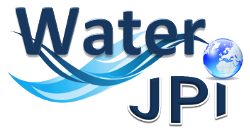The Water Research Commission launch a programme to monitor the spread of covid-19 in communities using a water and sanitation-based approach
On 20 May 2020, the Water Research Commission of South Africa launched a special programme on surveillance of COVID 19 in wastewater, sanitation and health that will be using sanitation-based approaches. The programme supports the South African government’s effort and interventions aimed at curbing the spread of COVID -19 such as rapid identification, testing and isolation of symptomatic people for treatment, tracing of contact cases and regular issuing of regulations on travel and social distancing and the recent community-wide COVID-19 testing initiative.
The surveillance programme is aimed at facilitating knowledge sharing, stimulating research and innovations on water quality, sanitation and health and the programme objectives will be achieved through the following initiatives:
- Pilot and full-scale implementation of wastewater surveillance as a non-invasive approach for monitoring the spread of COVID-19 in communities.
- Research work and capacity building on COVID-19 in relation to water and sanitation and health.
- Knowledge dissemination through webinars and workshops.
The programme will be implemented in three phases, the first being the establishment of the proof of concept of presence of COVID-19 in wastewater and sanitation samples, as well as establishing sample collection and testing protocols so that monitoring results can be reliable and compared. The second phase will establish wider capacity of laboratories in South Africa and put into operation more communities into surveillance. This will be followed by the final phase facilitating the establishment of a national surveillance scale monitoring activities supported by hotspot mapping.
The expected outputs of the programme are as follows:
- Novel water and sanitation-based approach for the surveillance of COVID-19 spread in less developed communities.
- Real time tracking of COVID-19 spread and resurgence in communities.
- Understanding the fate of the virus in the water, sanitation and wastewater environment.
The successful implementation of the programme will require a collaborative approach including key local and international partnerships. Improving the techniques of wastewater monitoring as a mechanism for the long-term surveillance of COVID-19 in our population and communities will have far reaching impact on our capacity and resources in dealing with the disease. The idea of creating a country-wide GIS based heat map to first act as a triage mechanism to better direct the resources of the Department of Health for on-the-ground testing as a low cost community level indicator is very attractive. It will also play a valuable role in monitoring the progress of the disease and the efficacy of the interventions as part of the long-term surveillance.
Please contact Mr Jay Bhagwan at Jayb@wrc.org.za for more information on the programme or wish to partner with the WRC at any phase of the programme
For the full article click here.

